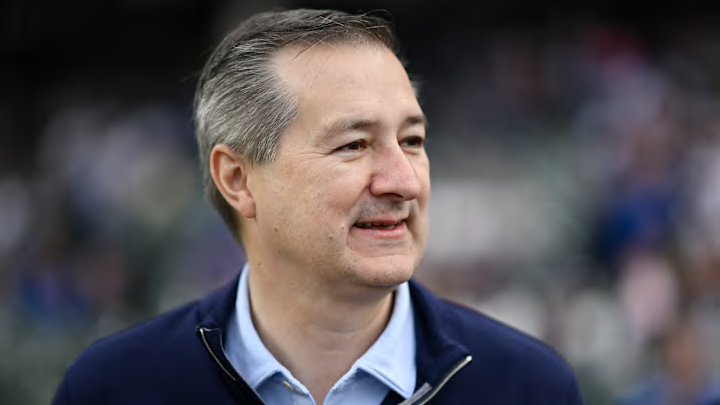Major League Baseball free agency's past two weeks have been defined by owners scheduling meetings with superstar free agent Juan Soto as Soto and his agent, Scott Boras, get a feel for his market during the early days of free agency.
Soto's market has already seen some surprise entrants but it hasn't been a surprise that the Chicago Cubs are not among the teams to line up a meeting with the star outfielder. Any confirmation that the Cubs are a potential mystery team for Soto was all but ruled out in Meghan Montemurro's latest reporting for the Chicago Tribune.
Citing sources, Montemurro rules the Cubs out of the sweepstakes for Soto. In doing so, Montemurro also added some comments made by Cubs' chairman Tom Ricketts a couple weeks ago.
“My perspective is that you get all the resources you can over to your baseball guys and let them allocate them,” Ricketts said. “Obviously, there are some players out there with 13-year contracts. We don’t have any of them at the moment, but some teams do that and some teams’ general managers think that’s a good use of resources. Some teams try to allocate their resources in a way that you get more for that and a little less exposure to long-term contracts.
Ricketts is quite the politician. Right after pointing out the reasons, as wrong as they may be, why a team may be opposed to signing a player like Soto, he deflects the final decision to Jed Hoyer as if Hoyer is not operating with the ideologies outlined by the team's owner. In doing so, Ricketts has begun to lay the groundwork for Hoyer leaving the organization following the 2025 season. Another season where Hoyer and company fail to construct a roster capable of reaching the postseason and Ricketts will likely say something along the lines of "they had full autonomy to get the job done and never crossed the finish line" while announcing front office changes.
This should strike fear in any Cubs fan.
Ricketts casting the blame on Hoyer after the 2025 season is not going to have the impact that some think it would. The exception to how Ricketts operates the Cubs was Theo Epstein. Epstein was the best form of a disruptor. That same descriptor can't be used for Ricketts and certainly cannot for Hoyer or Carter Hawkins. If Ricketts does decide to move on from Hoyer after the 2025 season, he won't be bringing in a disruptor like Epstein. Ricketts will be looking for someone who reflects the person he sees in the mirror: a passive baseball executive who is willing to let the market pass them by as they try to cut corners in building a contender.
